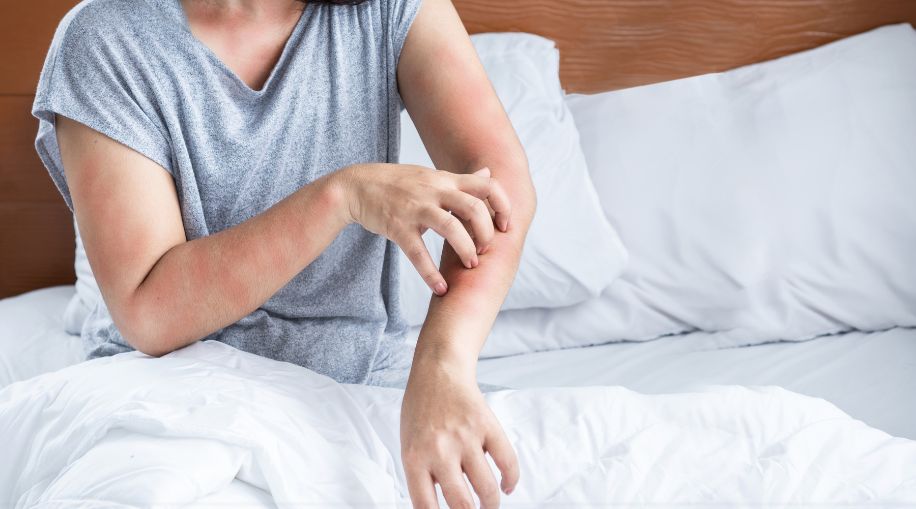Helping You Stay Healthy
Lymphoma is a type of cancer that affects the lymphatic system. This system is important for fighting infections and keeping you healthy. To help, there's Brukinsa, a medicine used to treat certain blood cancers like mantle cell lymphoma and chronic lymphocytic leukemia.
10 Signs of Lymphoma
1. Itchy Skin
Some people with lymphoma experience itchy skin that doesn’t improve. The itchiness can be all over or in certain spots.
2. Breathing Problems
If lymphoma affects your lungs, you might find it hard to breathe. You may feel short of breath even when resting or doing light chores.
3. Chest Discomfort
If lymphoma spreads to the chest, it can cause pain or pressure. You may feel discomfort or tightness in your chest area.
4. Belly Pain or Swelling
When lymphoma affects the abdomen, it can cause pain or swelling in your belly. You may feel full even after eating a little.
5. Frequent Infections
Because lymphoma can weaken your immune system, you may get sick more often. These infections may last longer and can be harder to treat.
6. Swollen Lymph Nodes
You may notice lumps in your neck, armpits or groin. These lumps happen when your lymph nodes swell.
7. Feeling Very Tired
If you feel weak and tired even after resting, it could be a sign of lymphoma. This tiredness can make daily activities hard to do.
8. Unexplained Weight Loss
Losing weight without trying is often a warning sign. If your clothes feel looser and you are not dieting, see a doctor.
9. Frequent Fevers
People with lymphoma may have fevers that come and go. These fevers are usually mild and may not be caused by an infection.
10. Heavy Night Sweats
If you wake up soaked in sweat, even when the room is cool, this can be a symptom of lymphoma. Night sweats can happen many times a night.
Treatments for Lymphoma
If you are diagnosed with lymphoma, there are several treatments available:
Chemotherapy
This is a strong medicine that kills cancer cells. It is a common treatment for lymphoma.
Radiation Therapy
This treatment uses high-energy rays to target and destroy cancer cells in specific areas of the body.
Targeted Therapy
This method uses drugs that focus on specific parts of cancer cells. It helps stop the growth of cancer while affecting fewer healthy cells.
Immunotherapy
This treatment helps boost your immune system, making it stronger against cancer.
Stem Cell Transplant
In some cases, doctors might recommend a stem cell transplant. This helps restore healthy blood cells after high doses of chemotherapy or radiation.
Brukinsa for Lymphoma
Brukinsa is a prescription medication used to treat certain types of blood cancers, such as mantle cell lymphoma (MCL) and chronic lymphocytic leukemia (CLL). It works by blocking a specific protein called Bruton's tyrosine kinase (BTK), which helps cancer cells grow and survive. By inhibiting this protein, Brukinsa helps slow down the growth of cancer cells and may improve survival in patients with these conditions. It is taken orally and is often used when other treatments have not been effective.
Getting an Early Diagnosis
If you notice any of these signs, it’s important to see a doctor as soon as possible. Early diagnosis and treatment can improve your chances of getting better. Remember, your health is important, so pay attention to what your body is telling you.
Read on to learn about the signs of nasal polyps.
